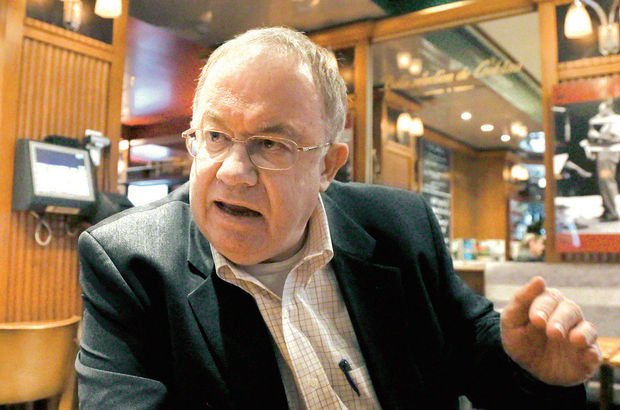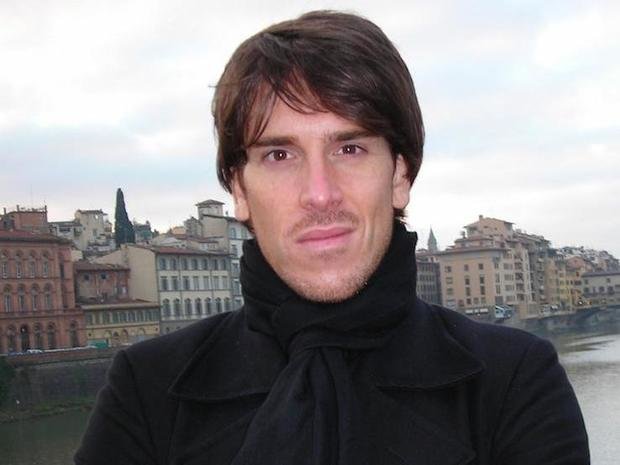Jihadization of radicalism: violence, drugs, and rapper Tupac Shakur
The opinion of a Kazan native from Amsterdam on ''religious'' youth radicalization
Terrorist attacks occurring in various parts of the globe are forcing experts once again to tell about religious radicalism. However, the reality is that many perpetrators are not necessarily practicing believers. Danis Garayev, a historian and researcher at the University of Amsterdam, in the newspaper column written for Realnoe Vremya raises the question: are we dealing with the radicalization of Islamism or Islamization of radicalism? The columnist tries to answer this question.
To the question about the terms
In contemporary discussions about the nature of so-called Islamism and the related problem of jihadism, one of the main questions is the following: whether are we dealing with the radicalization of Islam or Islamization of radicalism? Both Russian and foreign specialists argue on this subject. In particular, well-known French Orientalists and political analysts Gilles Kepel and Olivier Roy. It is Roy who gave the famous idea of ''Islamization of radicalism'' as a process, when existing in the world radicalism and social protest finds Islamic expression.
In general, the position of Roy looks convincing. However, in the case of ''Islamization of radicalism'' as well as in the case of ''radicalization of Islam'', the discussions revolve around the term ''Islam'' as a certain variable, which is necessary a priori. But does it always, when we try to understand the nature of terrorist attacks under the banner of jihad, the use of the term ''Islam'' is heuristically valuable? In my opinion, no.
In some cases, of course, Islamic studies of Muslim theology of jihad are relevant. However, in no less number of cases, in order to understand the problem they need to turn to other analytical optics.

If we are talking about the so-called jihadists, this picture is more like bricolage, which is randomly assembled from various pieces, and the term jihad performs the function of a brand, behind which there can stand different agenda: from counter-cultural uprising of the migrant from European suburbs to nationalist anti-colonial movement.
For example, most Caucasian leaders and ideologists of the jihadist movement in the 1990s and the first half of the 2000s had no serious Muslim education and their justification of jihad, as a rule, was built not on Islamic material but sometimes on even without sharia reasoning. The central motivational category, around which they formed their propaganda strategies, was particularly jihad, the rest of the Islamic values and concepts were either behind it or ignored at all.
Modern jihadist groups from European suburbs, which consist of children and grandchildren of migrants, are also quite often created around the idea of jihad, not a set of fundamental Islamic values. So many of them do not adhere to Islamic norms of behaviour, and some of them even do not considers themselves Muslims.
In this regard, in relation to the terrorist attacks of recent years, I would suggest calling this phenomenon not Islamization of radicalism but jihadization of radicalism, taking the term jihad from purely Islamic context.

''English sociologist Simon Cottee wrote that as the members of these jihadist groups live on the outskirts of European cities, they're influenced by Western street music traditions such as rap and hip-hop, when in the phones of young Muslims the photos of rapper Tupac Shakur are together with the photographs of bin Laden, and the use of marijuana is accompanied by viewing videos about jihad.'' Photo: vice.com
Hip hop and violence
If we are talking about so-called jihadist groups in Europe and the United States, their peculiarity lies in the fact that they were self-organizing structures that can create terrorist cells without organizational participation of the ''colleagues'' from the Middle East. Obviously, in this case we are dealing with not a single branched organization but with a certain social phenomenon, which can rather be compared with the massive spread of small youth gangs.
This community resembles a criminal group not only by structure but also culturally. For example, English sociologist Simon Cottee wrote that as the members of these jihadist groups live on the outskirts of European cities, they're influenced by Western street music traditions such as rap and hip-hop, when in the phones of young Muslims the photos of rapper Tupac Shakur are put together with the photographs of bin Laden, and the use of marijuana is accompanied by viewing videos about jihad. The path of a young hooligan from the suburbs to an armed fighter on the path of jihad can be so short that between these two points there lacks not only learning in a madrasah but also any thoughtful reading of Islamic literature. However, even in those cases when the path of a Muslim to jihad with arms in hands lies through a long study of the religion and the observance of many of its norms, exactly the relation to jihad is those demarcation line with which they separate themselves from the rest of the Muslims. In simple terms, for example, those Muslims who did not support and did not recognize the jihad of the ''Caucasus Emirate'' against Russia, the ideologists of this organization called them lost and hypocrites, wrong Muslims or non-Muslims even if it concerned the Muslims-Salafis complying with the religious requirements. Modern jihadists in the Middle East also follow the similar tactic. Thus, in any case, it is the relation to jihad turns out to be the litmus test that marks this phenomenon.
Far from Islamic practices
Many researchers explain that the terrorism, used by the jihadists, is a new way to reject the state monopoly on violence. This fact, in general, also relates this phenomenon with the criminal underworld. The same famous the law/code of the underworld in the USSR as an attempt to resist the state in the right to use violence for good, from their point of view, intentions. If in the criminal underworld, it was the thieves in law who observed the compliance with these laws, then in the world of jihadists, in my opinion, those whom Olivier Roy called ''lumpen-intellectuals'', i.e. people who do not fit into the existing division of intellectual sphere between the Muslim clergy and intellectuals from the academic world, had a similar status. So here we are talking about not Muslim scholars but the phenomenon which must be understood not so much through the problem of religious fundamentalism, but broader — through the problem of radicalism and violence associated with it.

''In the center there is also the special right to violence, which hides behind the term ''jihad'', which nevertheless does not oblige members to be observant Muslims, having some Islamic knowledge, but on the contrary — in practice, many of them were emphatically far from Islamic practices.'' Photo: Roman Khasaev
In my opinion, these conditional marginals, who received credibility among the radical youth not because of diplomas but their personal qualities — charisma, leadership and organizational abilities, by their status they remind kingpins of the criminal environment. In the center there is also the special right to violence, which hides behind the term jihad, which nevertheless does not oblige members to be observant Muslims, having some Islamic knowledge, but on the contrary — in practice, many of them were emphatically far from Islamic practices.
As for example, Anis Amri, running down in December 2016 pedestrians in Berlin, who was known to the German police for his involvement in drug trade and who repeatedly used ecstasy and cocaine. Also, Mohamed Lahouaiej-Bouhlel, the perpetrator of the attack in Nice the summer in 2016, was not an observing Muslim, he drank alcohol and took drugs.
Another striking example can be the tragic story of the terrorist attack in Paris in November 2015. One of the attackers were the owners of a bar from the suburbs of Brussels, which two weeks before the events in the French capital had been closed because the police revealed drug trafficking there.
No one should be confused that, despite existing in Islam prohibition to sell and consume alcohol and use drugs, people involved in it despite this took up arms and declared themselves supporters of ISIS (banned in Russia). After all, when we're talking about jihadism, it will not necessarily relate to Islam. Like in the recent story of the French terrorist group Cannes-Torcy, in which not only Muslims participated but also representatives of other religions. And is it really Islamization of radicalism? The call for jihad is not necessarily a story about Islam, so it is more correct to tell about not Islamization of radicalism but jihadization of radicalism — such jihad for the sake of jihad.